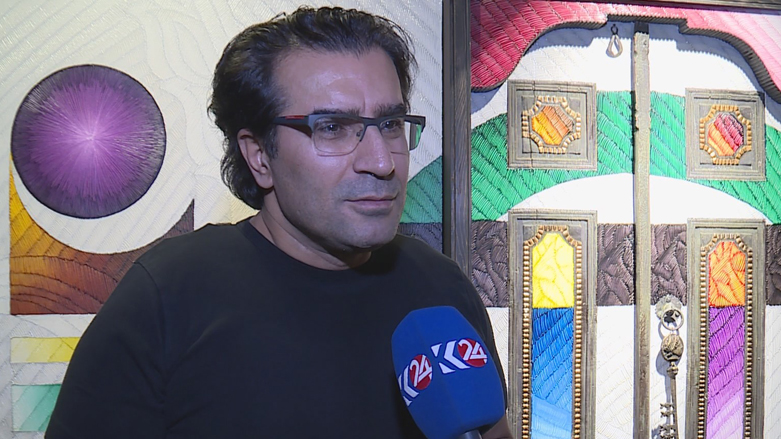'Little tolerance' for art in Turkey: Kurdish artist

ISTANBUL, Turkey (Kurdistan24) - After the removal of one of his artworks at an Istanbul shopping mall last week due to threats by a Turkish religious-nationalist mob, Kurdish visual artist Ahmet Gunestekin said there was "very little tolerance" for art in Turkey.
"Sometimes there are [negative] reactions to me personally because I am a Kurdish artist," Gunestekin told Kurdistan24 on Thursday in Istanbul, adding many more people appreciated his art.
Gunestekin's brightly-colored "Kostantiniyye" sculpture, made up of thirteen giant letters, was removed last Sunday by local authorities less than five hours after its installation.
The far-right mob chanted slogans, erroneously saying the city of Istanbul was called Istanbul since the Turkish conquest in 1453.
Before that, an Islamist TV channel had threateningly decried the public display of Istanbul's historical name for its association with the Byzantium Empire, even though the word Istanbul itself is the derivative of a Byzantine Greek phrase meaning "to the city."

[Kostantiniyye sculpture, Ahmet Gunestekin's website]
"There are too many zealots in Turkey. They do not read history, books. They do not even know what they believe in. In a sense they do not respect the hadith of Muhammad, or Sultan Mehmed the Conquerer. Then they say 'we are descendants of the Ottomans,'" said Gunestekin.
The world-renowned artist whose works have been featured at galleries from Erbil to New York was referring to an authentic saying of Islam's Prophet Muhammad in which he promises and praises a future Muslim conquest of Istanbul.
"Kostantiniyye" is a Turkish corruption of Constantinople which was officially in use during the Ottoman period until the declaration of the Republic of Turkey a century ago.
Gunestekin complained of a lack of support from Turkey's rulers and politicians.
"Neither the government nor the opposition or Kurdish parties spoke up for me. This saddened me. I think they turned a blind eye to what happened," said Gunestekin whose artwork was also exhibited at the 2015 Venice Biennale for seven months.
Editing by Ava Homa
(Silan Cilgin conducted this interview in Istanbul.)
